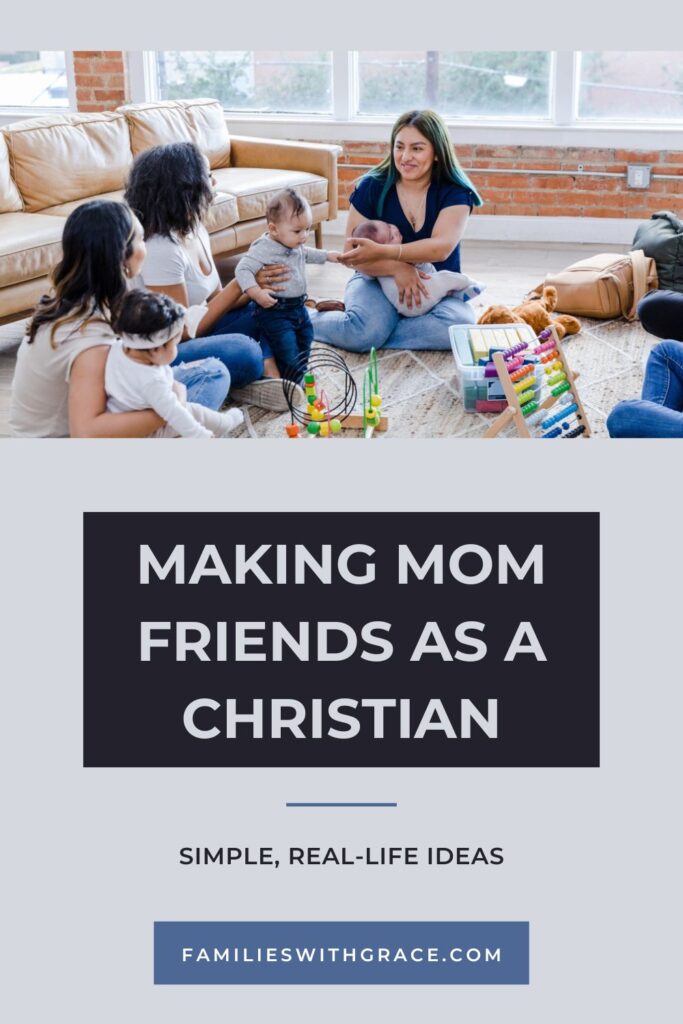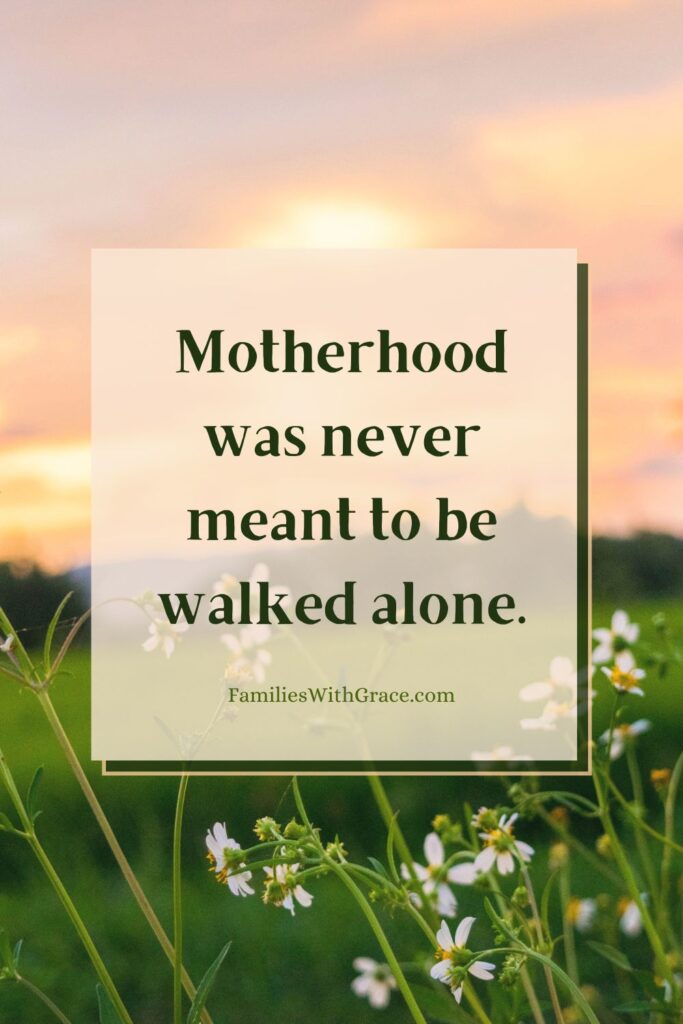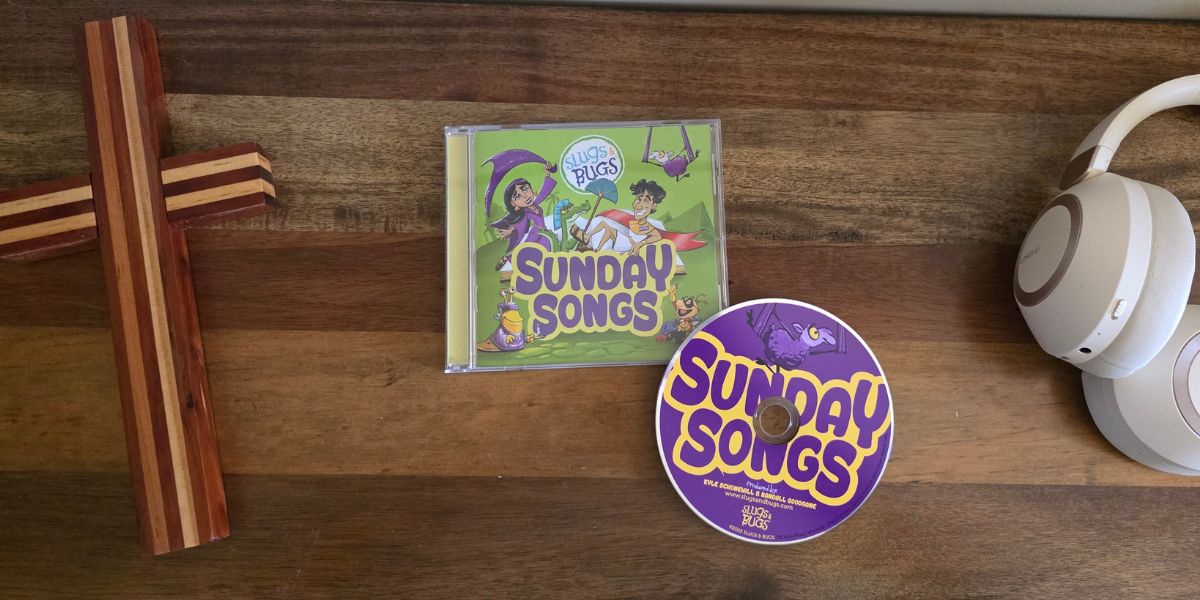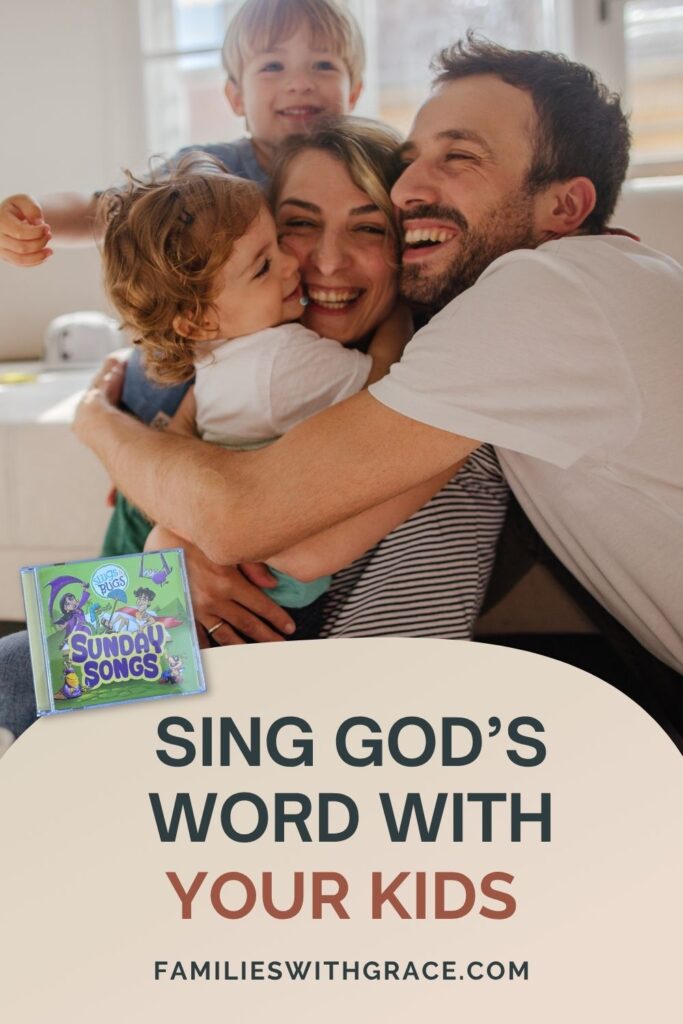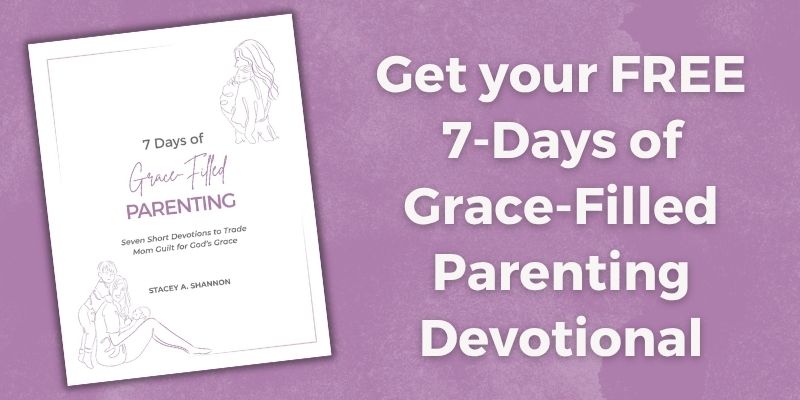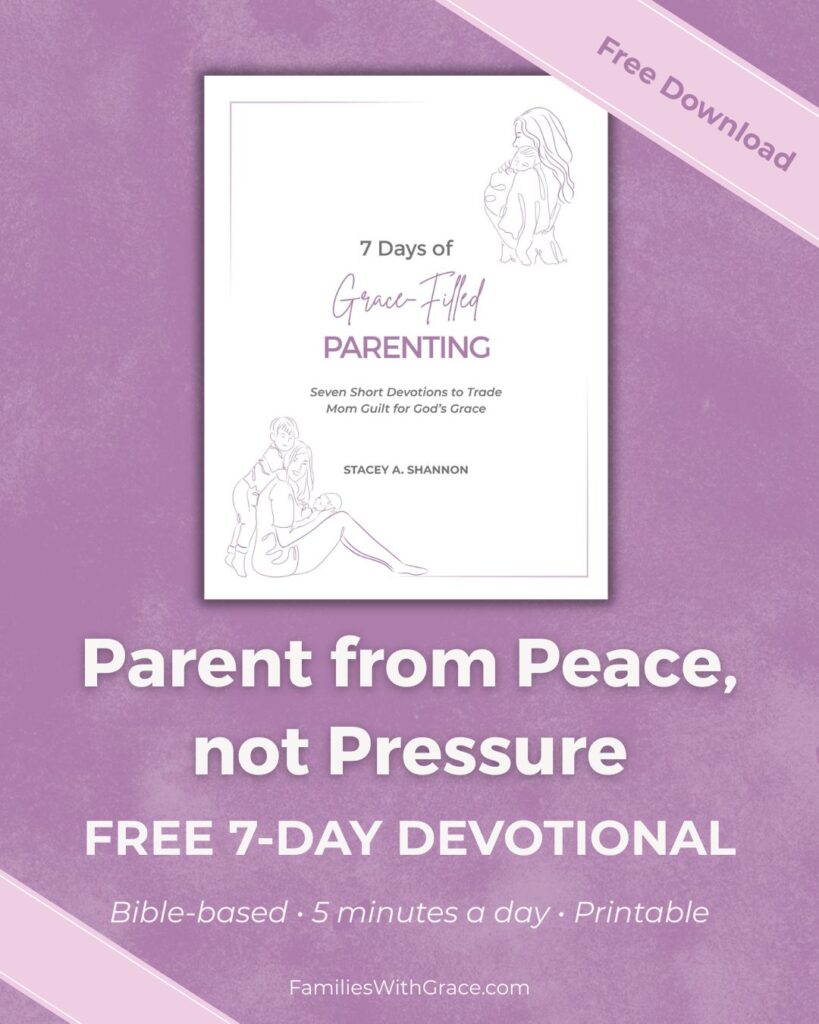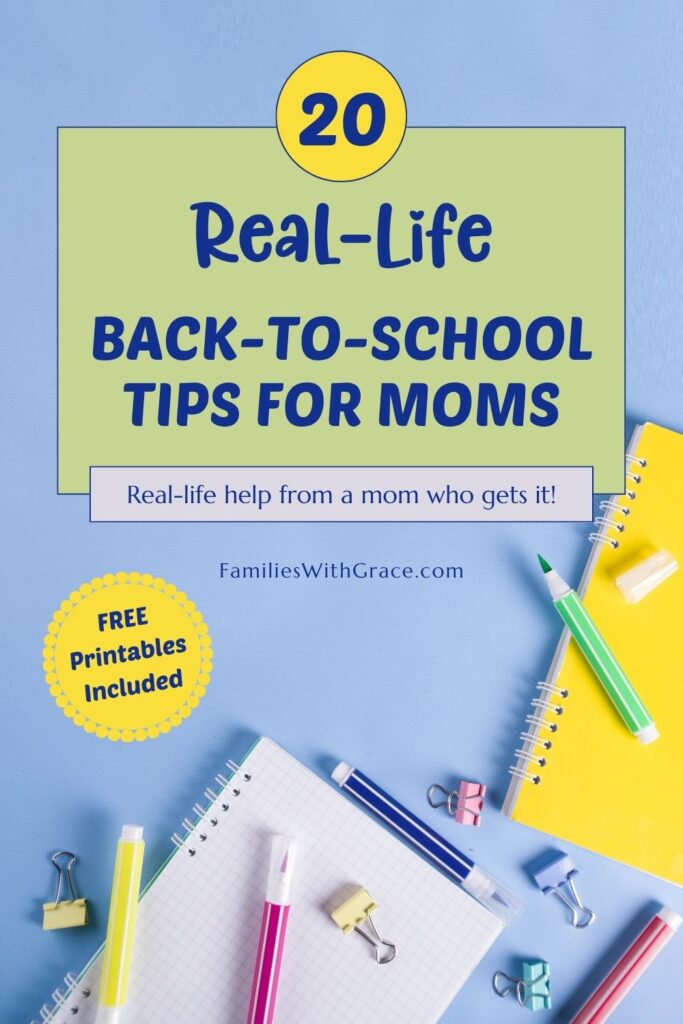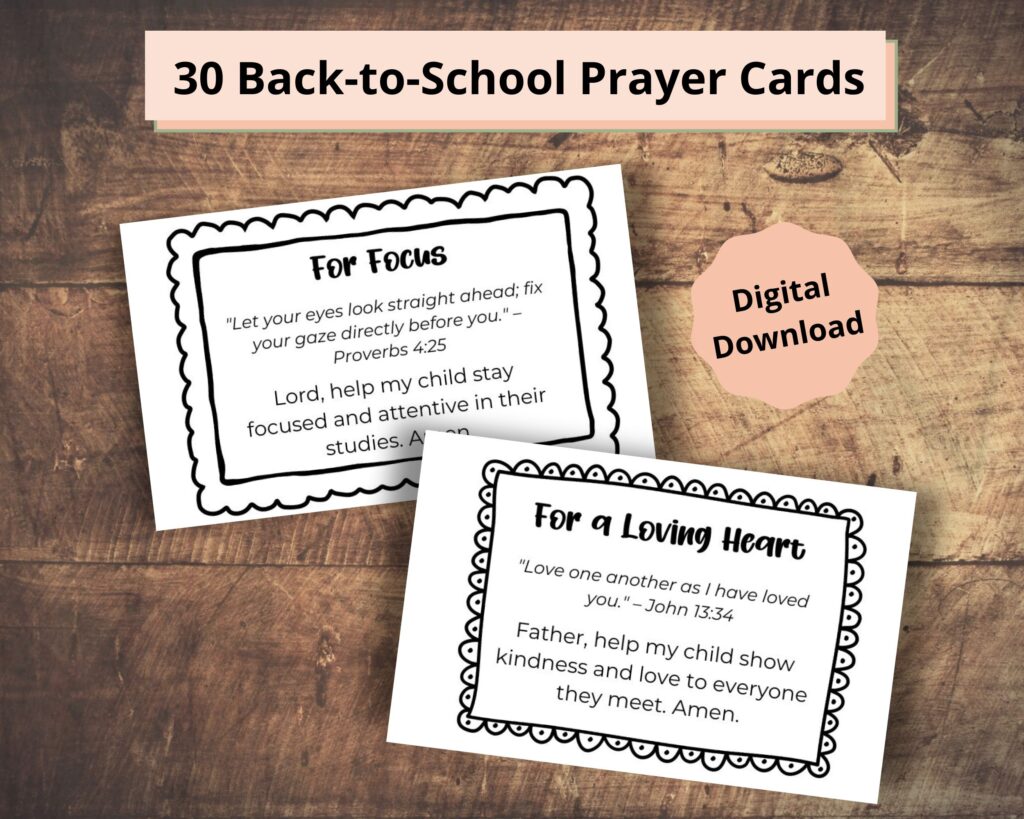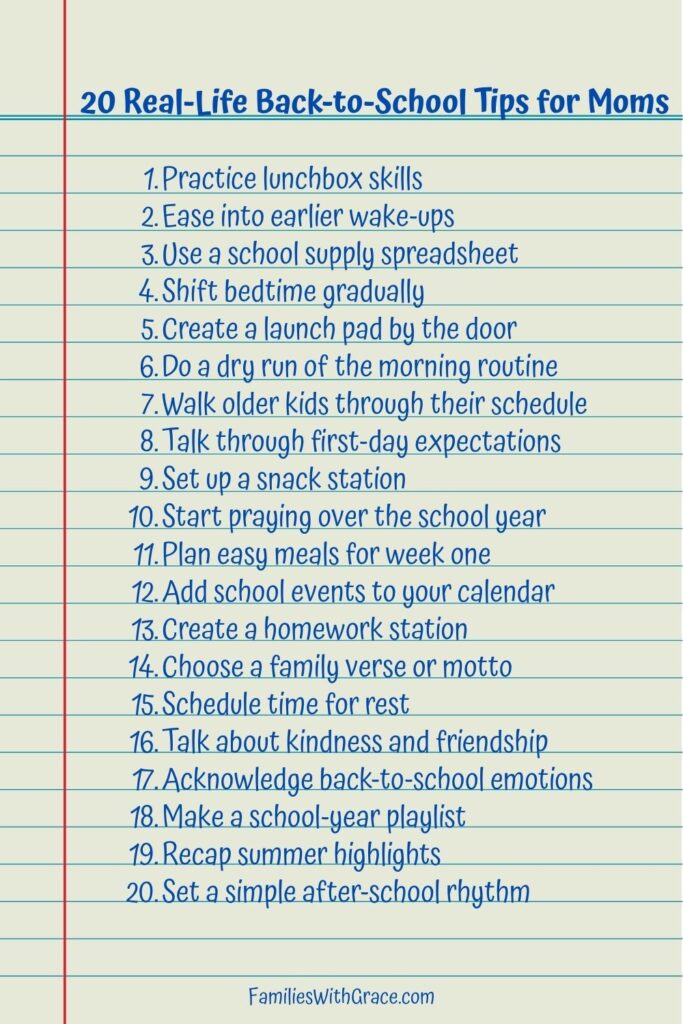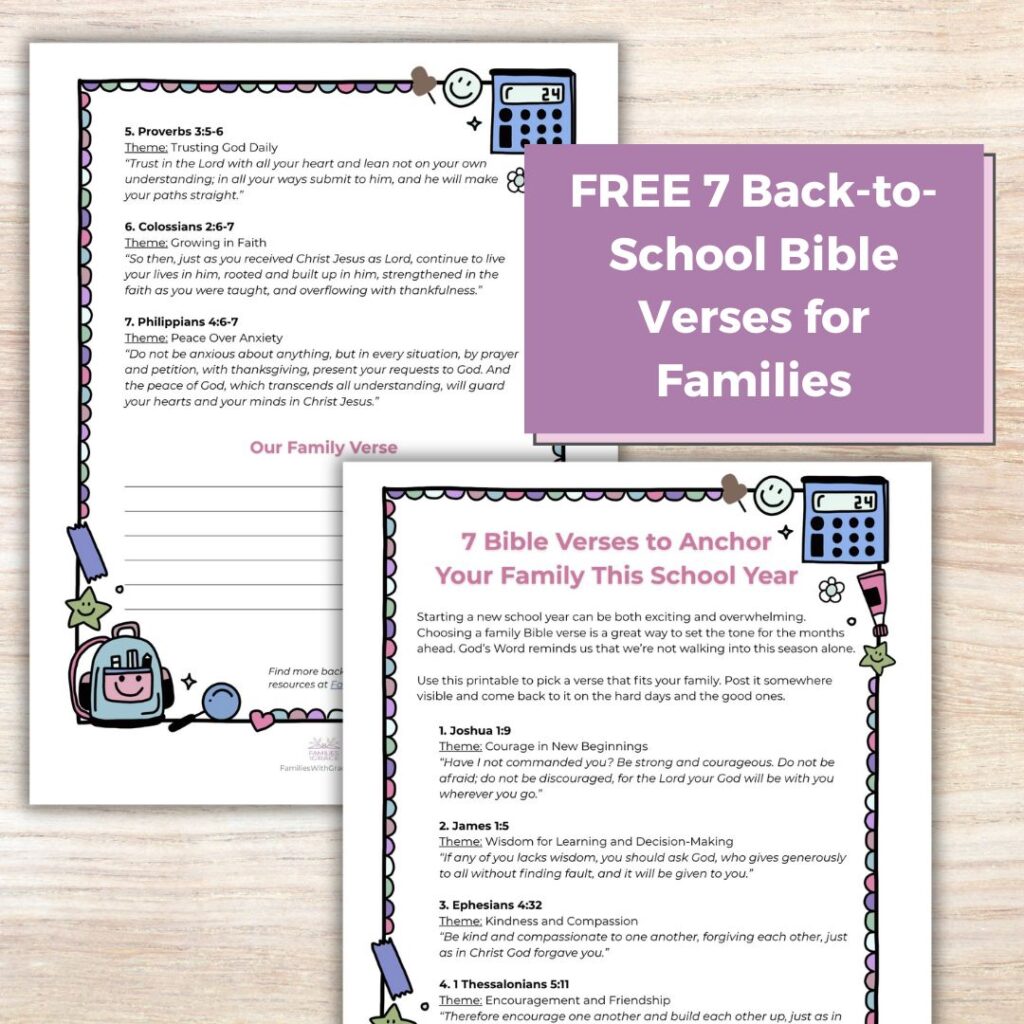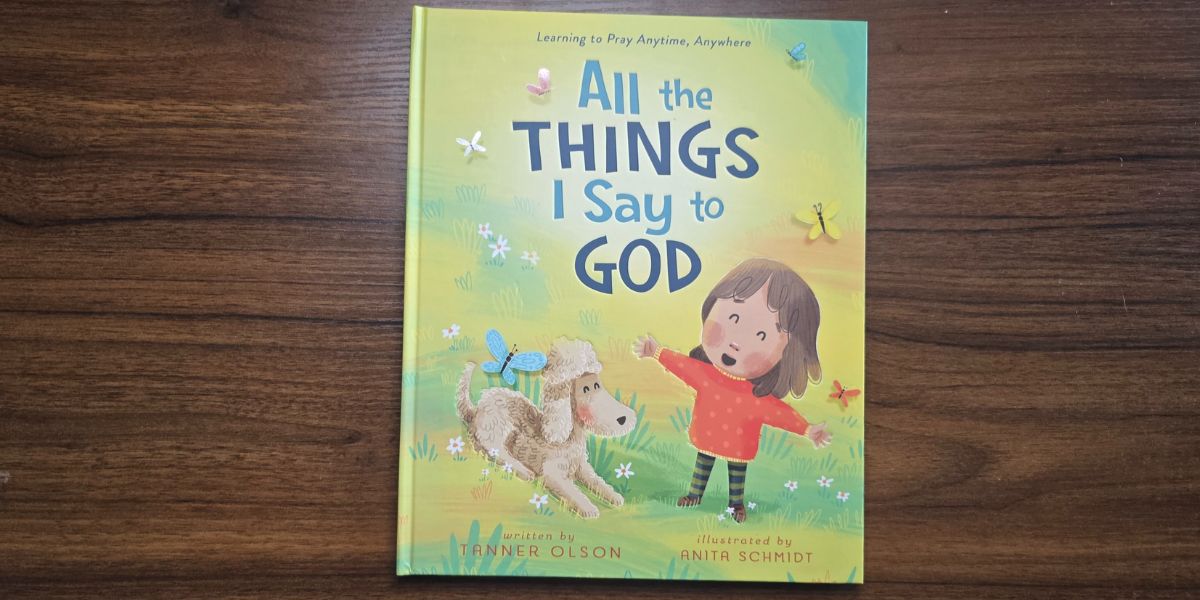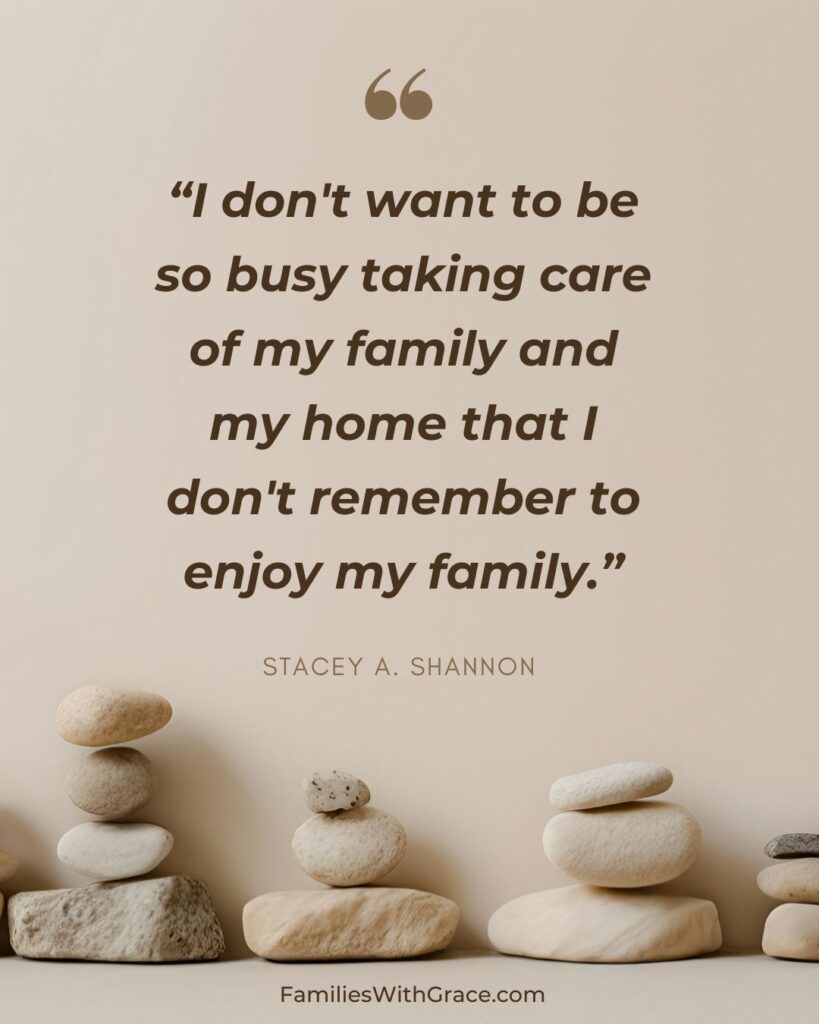Real-life tips for when the Christmas season feels anything but peaceful
Christmas has always been my favorite holiday. But, honestly, these days when the holiday season rolls around, I feel a bit anxious and stressed. Finding peace at Christmas in the midst of the stress and busyness can feel really hard.
As mamas, we can be so busy working hard to make sure everyone has a merry Christmas that we get bogged down in the details. The message of Christmas — the true meaning — ends up getting lost in the fray.

And that’s not at all what we want. I’ve learned that I have to be intentional about keeping Christ in Christmas. It may be the most wonderful time of the year, but it’s also the busiest and most distracting.
As my Christmas to-do list starts rolling through my head, I’ve got some reminders and strategies for us all to experience peace this Christmas and rest in the comfort of the birth of Jesus.
Because true peace doesn’t come from quiet around us. It comes from God’s presence in our hearts and lives.
Affiliate links are used in this post, if you make a qualifying purchase via my link, I receive a small percentage of the sale at no additional cost to you. It helps support my blog, so thank you for your support! Read my full disclosure here.
Remember the source of peace
This may seem like the most obvious tip of them all. Yet, the only way to truly experience God’s peace is to make time for Him.
That means even during Christmas time — maybe especially during Christmas time — that we spend time with Him through His Word and in prayer.
“You will keep in perfect peace those whose minds are steadfast, because they trust in you.”
Isaiah 26:3 (NIV)
Having a steadfast mind simply means that we put our minds to God. That’s the quickest way to find peace in any situation.
There are some simple ways to get into the Word of God during the Christmas season. Having good habits in place for devotion time in God’s Word make this easier.
But, even if you don’t have a regularly scheduled devotional time, this is an amazing time of the year to start.
Books like “A Family Christmas Devotional” are written to help you and your entire family reflect on and remember the birth of Christ Jesus in as little as five minutes a day. It has simple reflection questions for kids, teens and adults.
The good thing about a family devotional is you are helping your children set good habits and traditions to keep Christ in Christmas as well.
This Christmas season, commit to spending at least five minutes each day inviting God into the busyness and fray. Ask Him for inner peace and reminders of the true reason for the season.
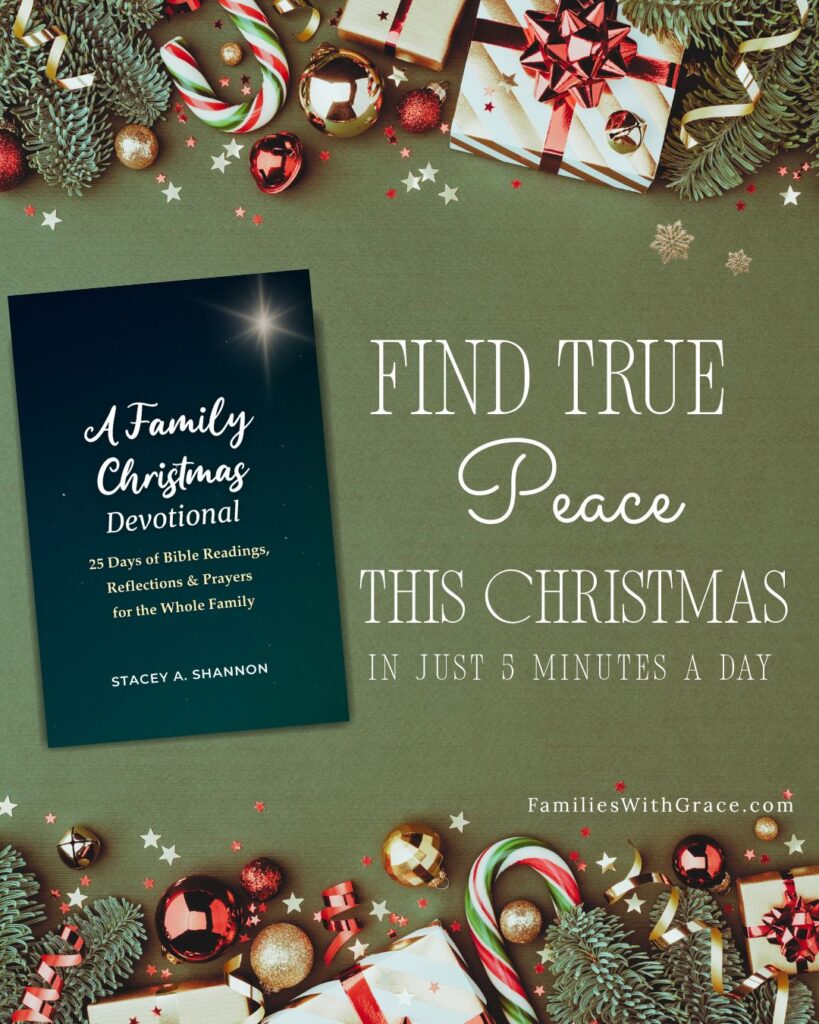
Simplify your expectations
I know in my own life how easy it is to get caught up in doing all the things so our kids know the magic of Christmas. We want the gifts to be thoughtful, the cookies to be homemade and the house to feel cozy and cheery.
But sometimes, in trying to make everything picture-perfect, we miss the peace that’s waiting quietly beneath the surface.
One of the biggest lessons I’ve learned over the years is that my family members don’t need me to do everything; they need me to be present. It’s OK if we skip a few traditions this year or take some shortcuts.
The truth is, peace at Christmas often comes when we release ourselves from the pressure to make it all perfect.
What matters most is that we’re creating space for God’s presence and quality time for one another.
Try asking yourself: “Will this help my family draw closer to each other and to Jesus?” If the answer is no, maybe it’s time to let it go this year.
Talk to your family and see what matters to them most. You might be surprised that some of the simpler pleasures of the season are what they look forward to most anyway.
(Read more about deciding which holiday traditions to keep here.)
Adjusting our expectations can help us focus on the simplicity of the holiday and embrace the true joy of Christmas.
Make space for quiet moments
Peace doesn’t usually shout; it whispers. And in a world full of noise, we have to make space to hear it.
That might look like waking up five minutes early to pray before the day begins or turning off the TV for a few minutes at night to read Scripture as a family. Sometimes, it’s simply pausing during dinner to thank God for His blessings or taking a deep breath before heading out the door.
When I think about Mary, the mother of Jesus, I’m reminded that she “pondered these things in her heart” (Luke 2:19). She didn’t rush from one thing to another. She took little breaks and reflected.
Peace lives in the quiet, reflective moments when we let the God of peace calm our hearts with His presence.
(If you’re looking for a simple way to build that habit, my Family Christmas Devotional is designed for just that. It helps families spend five intentional minutes together each day focusing on Jesus, even in the busiest season.)
Let go of comparison
It’s so easy to fall into the trap of comparing our Christmas with everyone else’s. We see the perfectly decorated trees on Instagram, the coordinated family outfits, the endless gifts, and suddenly our best effort feels small.
But peace doesn’t come from measuring up to others. It comes from resting in the truth that you’re already enough and that your family’s Christmas doesn’t have to look like anyone else’s.
God isn’t asking for perfect decorations or an elaborate Christmas dinner; He’s asking for open hearts and a little time spent with Him.
When we stop comparing, we make room for gratitude. And a thankful heart always brings peace.
Keep your focus on Jesus
When it comes down to it, peace at Christmas is really about keeping our eyes on Jesus. Everything else—presents, lights, activities—fades in comparison to the wonder of His birth.
This year, try weaving reminders of Jesus into your home and daily rhythm:
- Display a nativity scene where everyone can see it.
- Play Christmas worship music in the background as you wrap gifts.
- Choose a verse about peace to memorize as a family, like John 14:27.
- End the day with a short prayer of thanks for the Prince of Peace who came for us all.
Because the more we focus on Him, the more we realize peace isn’t something we have to chase. We already have it through Christ.
Take care of yourself.
Mama, I know how easy it is to put yourself at the bottom of the list, especially at Christmastime. You’re wrapping the gifts, planning the meals, coordinating the calendar and making sure everyone else feels loved and cared for.
But if you’re running on no sleep, cold coffee and cookie dough, it’s hard to feel peaceful no matter how strong your faith is.
The truth is, taking care of yourself isn’t selfish; it’s essential. When you’re rested, nourished and spending even a few quiet minutes with God, you’re better able to pour love and peace into your family.
Give yourself permission to:
- Go to bed a little earlier, even if the to-do list isn’t done.
- Say no to one more commitment without guilt.
- Step away for a few minutes of quiet and prayer when you feel overwhelmed. (Maybe go for a short walk and get some fresh air.)
- Eat a nutritious meal between all those Christmas cookies (I’m talking to myself here, too!).
Remember, even Jesus rested. He stepped away from the crowds to pray and recharge. If the Son of God needed rest, we definitely do, too.
When you care for your body and soul, you create space for God’s peace to settle in. And one of the best gifts you can give your family this Christmas is a peaceful, present version of you.
Closing encouragement
If this season feels heavy or overwhelming, take heart and know you’re not alone. Many of us are craving peace at Christmas.
The good news is that peace isn’t something we have to create; it’s already been given through Jesus.
When we slow down, simplify and keep our eyes on Him, we find the calm our souls have been searching for.
So this Christmas, let’s choose peace over perfection and presence over performance. Let’s welcome Jesus—the true Prince of Peace—into every moment.
And if you’d like a simple way to stay centered on Him throughout December, check out “A Family Christmas Devotional.” It’s 25 days of short, heartfelt reflections to help your family experience more joy, connection and peace this Christmas.
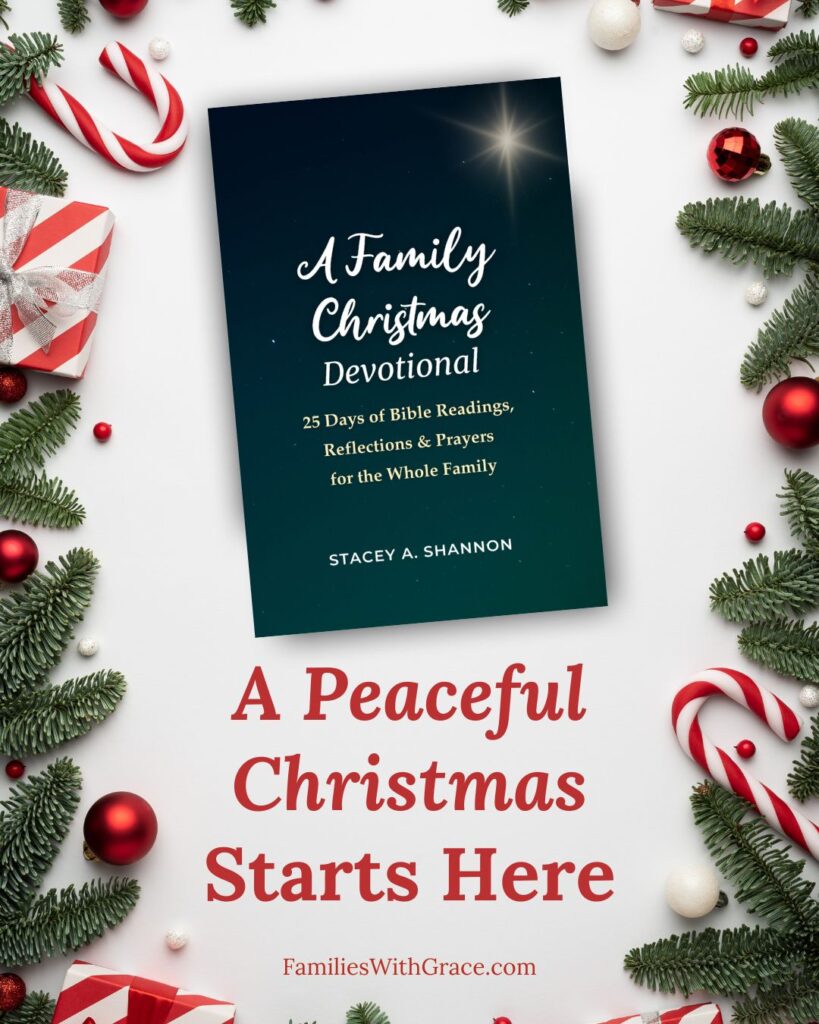
Find more great resources and ideas for Christmas:
How to decide which holiday traditions to keep
Free printable Christmas lunchbox notes and jokes
How to keep Christ in Christmas
The best 5-minute Advent devotionals for families
7 Christmas hacks to make your life easier
8 Simple Christmas traditions to bring your family closer (with 2 free printables!)





